15 Surprising Things You Need Math For
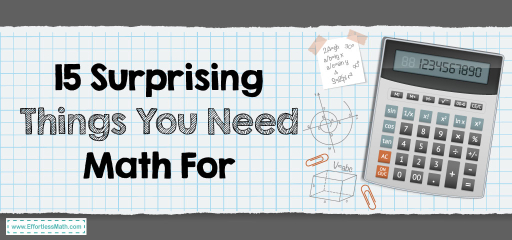
When you think of math, you probably picture school tests, tax season stress, or that one friend who enjoys Sudoku (bless them). But math isn’t just something you learned and left behind—it still shows up all the time, quietly shaping your decisions.
You might not call it “doing math,” but when you’re adjusting a recipe, figuring out if a sale is worth it, or deciding whether to walk or drive somewhere, you’re using numbers more than you think. And once you start noticing it, it’s kind of fascinating how often it’s hiding in plain sight.
Let’s take a look at where math might already be showing up in your life.
1. Cooking and Baking
You might think cooking is all about creativity, but precision plays a huge role, especially when baking. Measuring ¾ cups of flour, converting grams to ounces, scaling recipes up or down… It’s all math. One small miscalculation and your cookies could come out rock-hard or completely flat. Ratios, fractions, and even a touch of chemistry are quietly doing their thing while you’re in the kitchen.
2. Crypto Gambling and the Math Behind It
There’s more math in gaming than most people expect, especially when crypto is involved. Take MetaMask casinos, for example. These are online platforms that let you play casino games using cryptocurrency directly from your MetaMask wallet. No lengthy sign-ups, no ID checks—just your wallet and the blockchain. But to play smart, you’ll need more than luck. Understanding gas fees, crypto values, and how “provably fair” algorithms work can assist you in making well-informed decisions.
These systems rely on cryptographic math to prove outcomes weren’t manipulated. Even classic games like blackjack or roulette involve probability, expected value, and odds. It’s not just fun—it’s numbers, logic, and real-time problem solving wrapped in entertainment.
3. Choosing a Mortgage
Mortgages are giant math equations hiding in legal language. You’ve got interest rates, monthly payments, amortization schedules, loan terms… and tiny differences can cost (or save) you tens of thousands over time. Understanding how to calculate total repayment or compare loan offers isn’t optional—it’s how you protect your future budget from unnecessary stress.
4. Playing Video Games
Yes, really. Even in a fantasy RPG, math is everywhere. Game developers build mechanics based on stats, balance, probability, and progression curves. And as a player, you’re using math when you manage inventories, calculate attack strengths, or decide how many coins you need to upgrade your gear. Whether you’re grinding XP or calculating damage, you’re using math to level up—literally.
5. Planning Travel Itineraries
Trying to squeeze three cities into a one-week trip? How do you balance flight times, hotel check-ins, and budget for meals on the go? That’s math. From converting currencies to figuring out time zones to calculating how long it’ll take to get from one train station to another, a good travel plan is a math puzzle you get to solve in real time.
6. Online Dating
Algorithms run the show here. Apps use location data, match percentages, and behavioral patterns to suggest people you might click with. Some even rely on mathematical models similar to those used in machine learning. And if you’re someone who overthinks how long to wait before replying or likes to track your match-to-message ratio… you’re already working with data and probability.
7. Decorating Your Home
Making a space feel good isn’t just about having great style—it also comes down to a bit of math. You’re measuring walls to see if the couch will fit, figuring out how much paint you’ll need, or spacing frames evenly across a gallery wall so it doesn’t look off-balance. Even something as simple as centering a rug under a table involves eyeballing proportions and getting the numbers right. Geometry quietly tags along while you arrange, hang, or plan—and the more you lean into it, the easier it is to turn a space into something that feels intentional, not accidental.
8. Budgeting and Saving
It sounds straightforward—spend less than you earn—but managing money is more than just basic subtraction. Budgeting is about paying attention. You’re dividing your paycheck between rent, groceries, savings, and the fun stuff. You’re noticing where small expenses—like that daily coffee or streaming subscription—quietly stack up.
And when prices go up or something unexpected comes along, you’re adjusting the numbers to make it work. That’s math in motion. If you’re planning for a vacation, tracking how much your bills have crept up, or just trying to feel a little more in control each month, you’re using math to make choices that shape your everyday life—and your future.
9. Investing in Crypto
Math plays an even bigger role when you step into investing. With crypto, especially, you’re not just buying and holding—you’re watching trends, reading charts, and trying to understand what indicators might mean. It’s like financial forecasting meets algebra. And if you’ve ever calculated potential gains (or losses) after gas fees and exchange rates? Congrats—you’re officially mathing.
10. Fitness and Nutrition
Every workout plan and nutrition app is built on formulas. Calorie intake, macros, rest intervals, heart rate zones—it’s all numbers. When you’re counting steps or planning protein intake based on body weight, you’re applying ratios, averages, and some light statistics to improve how you feel and function.
11. DIY Projects
Building a table? Hanging a shelf? You’ll need to measure, level, and space things evenly. That’s geometry, angles, and arithmetic. Even when you’re eyeballing something, your brain is still estimating proportions and distances. DIY is where math becomes hands-on.
12. Shopping for Deals
We all love a good deal, but figuring out what counts as one takes a bit of math. Is 30% off better than buy-one-get-one? Is the bigger bottle saving you money, or just taking up more space? When you pause to compare price per unit or check how much you’re saving during a sale, you’re doing the kind of quick math that makes a difference.
Even those prices that end in.99 are designed to trick your brain into thinking something’s cheaper than it is. And all those loyalty points, cash-back offers, or subscribe-and-save discounts? They’re built on algorithms. But when you slow down and do the math yourself, you’ll spot what’s worth it—and feel pretty proud walking away with the better deal.
13. Watching Sports
Sports fans know that stats are half the story. Analytics are everywhere—from fantasy leagues to real-time win probabilities. Coaches use data to make decisions mid-game. Fans use it to argue who’s better. It’s not just about the score anymore—it’s about the numbers behind it.
14. Reading Maps and GPS
Even in the age of turn-by-turn navigation, it helps to understand distance, speed, and estimated time of arrival. If traffic reroutes you or you’re off-grid, having a feel for how long five miles really is—or how fast you can walk a mile—can make the difference between arriving early or not at all.
15. Making Career Moves
Career decisions are rarely just about ambition—they’re about doing the math on your future. Whether you’re thinking of switching jobs, going freelance, or moving to a new city, there’s a lot to consider.
How much more (or less) would you earn? What’s the cost of living there? How long would your commute be—and is it worth it? Even things like health benefits or remote flexibility have a value that’s easy to overlook. On the surface, it might feel like a gut decision, but most of us are quietly calculating what adds up best for our finances, our time, and our quality of life.
Math Is Already Part of Your Life
Here’s the thing—you don’t need to be a genius with numbers to be “good at math.” You already use it, probably more than you realize. It shows up when you’re figuring out if there’s enough time to walk somewhere, splitting a bill with friends, planning meals, or deciding whether that online sale is worth it.
Math isn’t just formulas or fancy calculators. It’s the quiet logic that helps you make choices—how to spend your money, when to say yes to something, or how to organize your space so it just feels right. It’s in the background, doing its job without asking for credit. And once you start noticing it, it’s kind of empowering. You’ll realize you’ve been relying on math all along—you just didn’t have to call it that.
Frequently Asked Questions
What is the difference between mean, median, and mode?
The mean, median, and mode are all measures of central tendency in statistics, each providing a different perspective on the “average” value of a dataset. The mean is the arithmetic average, calculated by adding up all the numbers and then dividing by the count of numbers. The median is the middle value when the numbers are arranged in order, and it’s particularly useful when data is skewed or outliers are present. Lastly, the mode is the number that appears most frequently in the data set. Each of these measures can be crucial when making everyday decisions, such as determining the average cost of ingredients when you’re scaling a recipe for a larger gathering.
How do you convert fractions to decimals and percentages?
Converting fractions to decimals and percentages is a handy skill, especially when you’re adjusting recipes in cooking or baking, as mentioned in your post. To convert a fraction to a decimal, simply divide the numerator (the top number) by the denominator (the bottom number). For example, to convert ¾ to a decimal, divide 3 by 4 to get 0.75. To turn this into a percentage, multiply the decimal by 100, which makes it 75%. This process helps you quickly adjust measurements or calculate proportions accurately, ensuring those cookies turn out just right!
What is the difference between an equation and an expression?
An equation and an expression are both fundamental mathematical concepts that often come up in everyday scenarios, such as adjusting a recipe or calculating discounts during a sale. An expression is a combination of numbers, variables (like x or y), and operators (such as +, -, *, /) that represents a value. For example, 2x + 5 is an expression. On the other hand, an equation is a statement that asserts the equality of two expressions, separated by an equals sign (=). For example, 2x + 5 = 15 is an equation, indicating that both sides of the equals sign have the same value. Understanding the difference helps in solving math problems correctly, whether in a classroom or while baking cookies.
Related to This Article
More math articles
- The Ultimate MEGA Elementary Education Multi-Content Math Course
- How to Use Area Models to Factor Variable Expressions?
- Direct Substitution in Limits: Everything you need to know
- TExES Core Subjects Math- Test Day Tips
- Volume of Cubes
- Top 10 Tips You MUST Know to Retake the FTCE Math Test
- What are the Undefined Limits: Defining from Tables and Graphs
- Categorization of Differential Equations: An Expert Classification
- Writing and Evaluating Expressions for 5th Grade: Variables and Rules
- Battle of the Decimals: Using Grids for Easy Comparisons
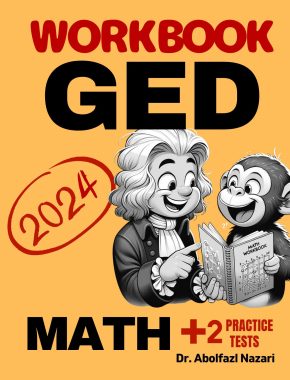
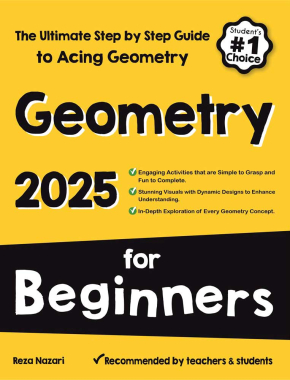
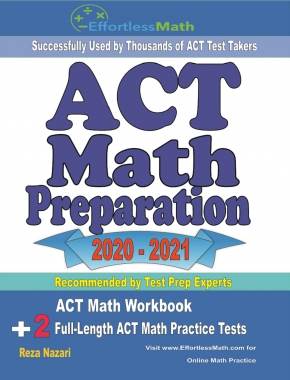
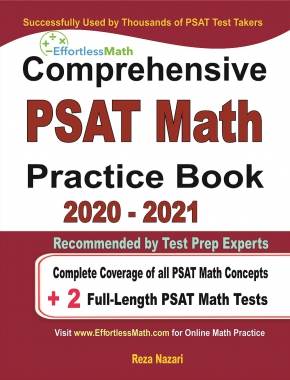
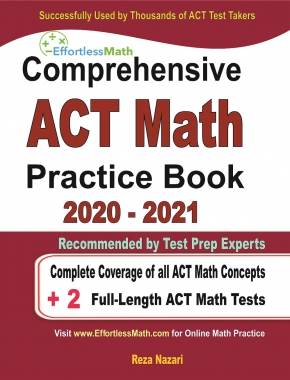


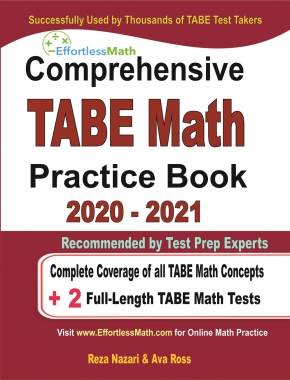





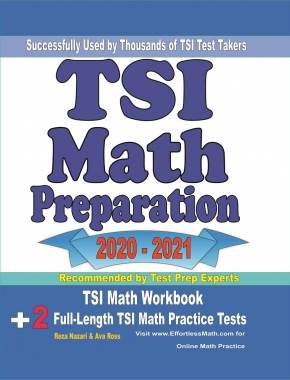
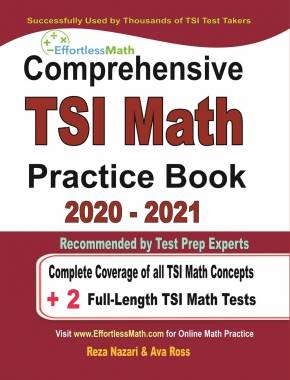
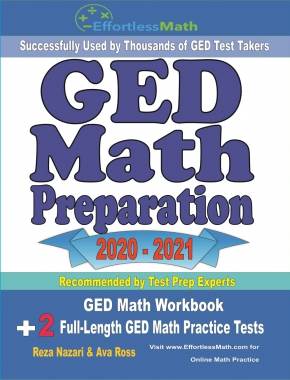





















What people say about "15 Surprising Things You Need Math For - Effortless Math: We Help Students Learn to LOVE Mathematics"?
No one replied yet.